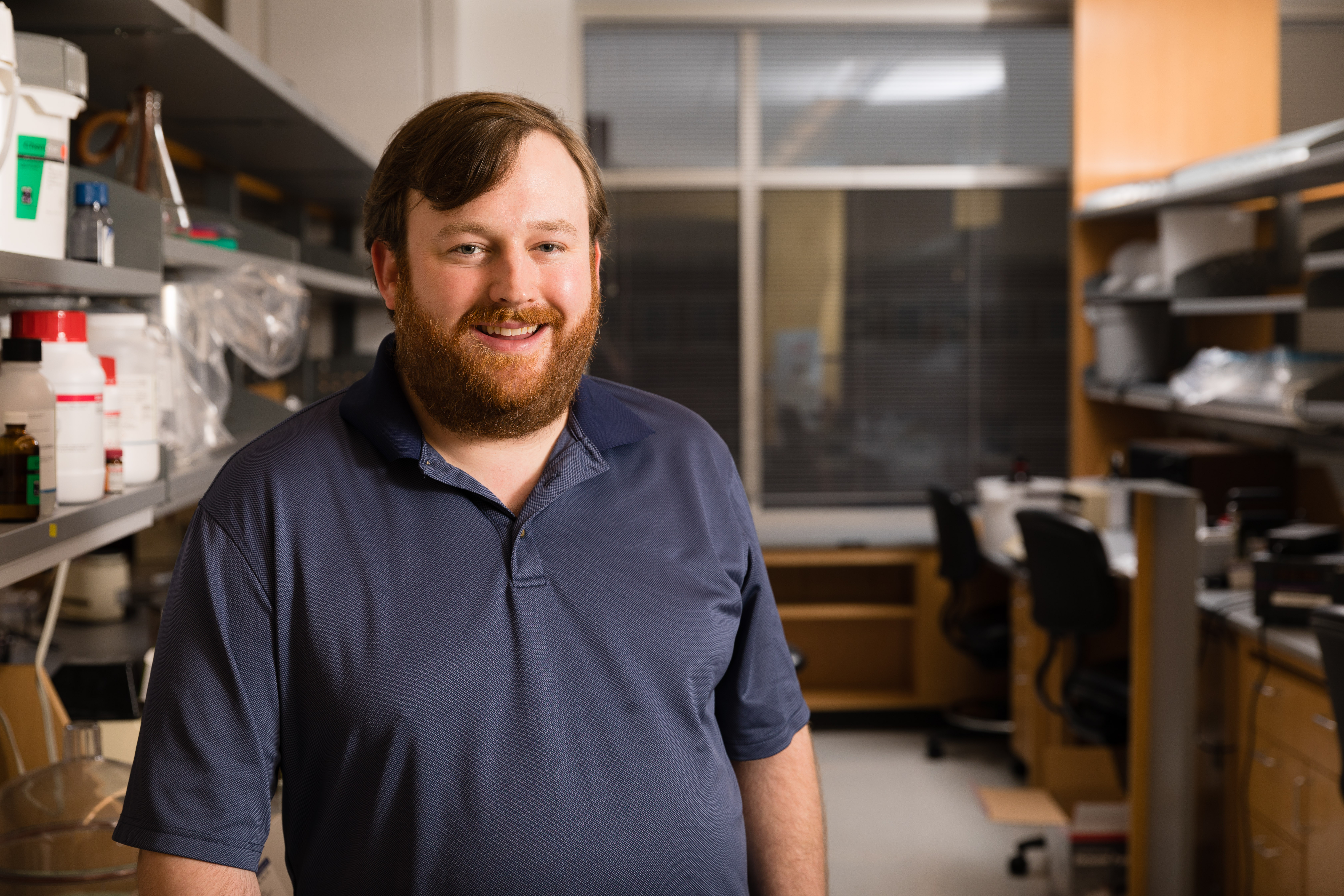GCD faculty member receives early-career award for nucleic acid research

Aaron Engelhart, an assistant professor in the Department of Genetics, Cell Biology and Development (GCD), received the International Society for the Study of the Origin of Life’s Stanley L Miller Early-Career Research Award. The award is given for Ph.D. or postdoctoral research that makes a significant contribution to the field. It’s the highest honor for an early-career researcher doing work relating to the origins of life.
Engelhart was recognized for his work on nucleic acids. He studies a type of nucleic acid called aptamers, which can be used to hold and transport specific molecules. Engelhart and Kate Adamala, a fellow GCD faculty member and frequent collaborator, are using an RNA aptamer to introduce specific components into artificial cells to try to assemble cell-like systems from inanimate parts. They are also using an aptamer that binds a molecule that glows under certain conditions in hopes of creating a tool that allows them to closely observe communication between cells.
“Aaron is an exceptionally creative scientist with a track record of finding surprising solutions to difficult problems,” says Harvard Medical School professor and Nobel Laureate Jack Szostak, who was Engelhart’s post-doctoral research advisor. “His discovery of a simple physical basis for coordinating nucleic acid replication with membrane growth in protocells exemplifies this special talent, and I am delighted that he has been recognized by the Stanley Miller Award.”
Engelhart received the award at a ceremony during the society’s annual meeting earlier this month.